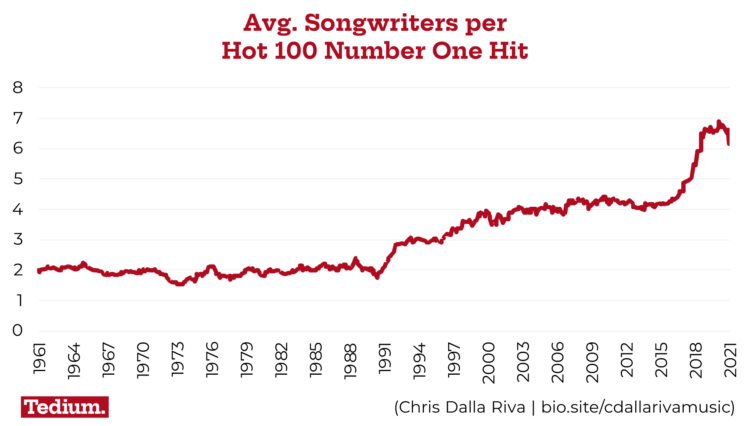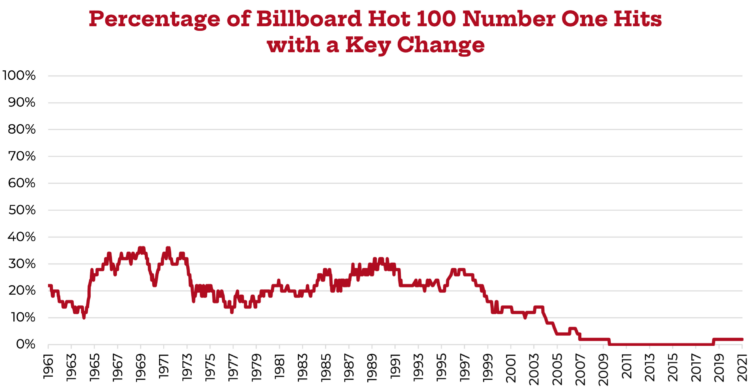For Tedium, Chris Dalla Riva examined why the number of credited songwriters per song appears to have increased so much over the past decade:
Between 1960 and 1980, 48 percent of number ones had at least one common person get both a songwriting and production credit. Between 2010 and 2020, that percentage had risen to over 99 percent. Songwriting just isn’t what it used to be. And I don’t mean that in a condescending way. I mean that we are using the same word to describe two very different things.
It’s not about a decline in skills and instead about a change in process.
Tags: Chris Dalla Riva, music, producers, Tedium

